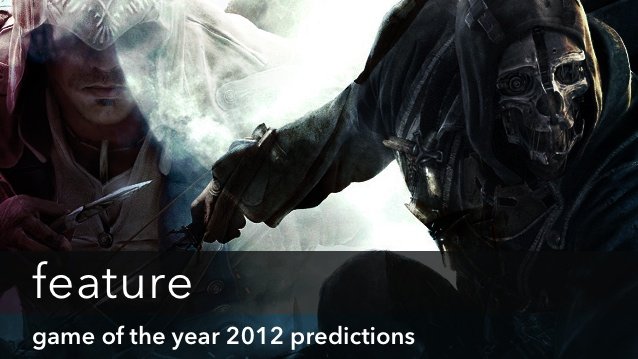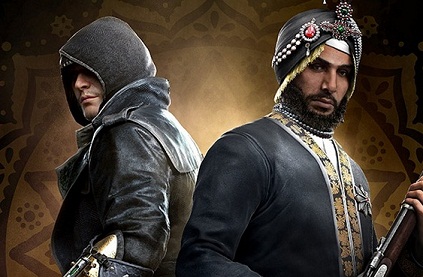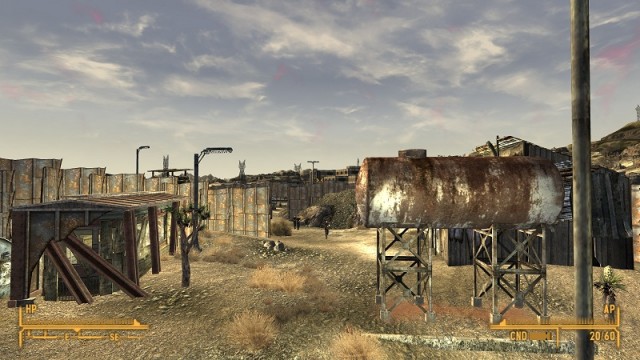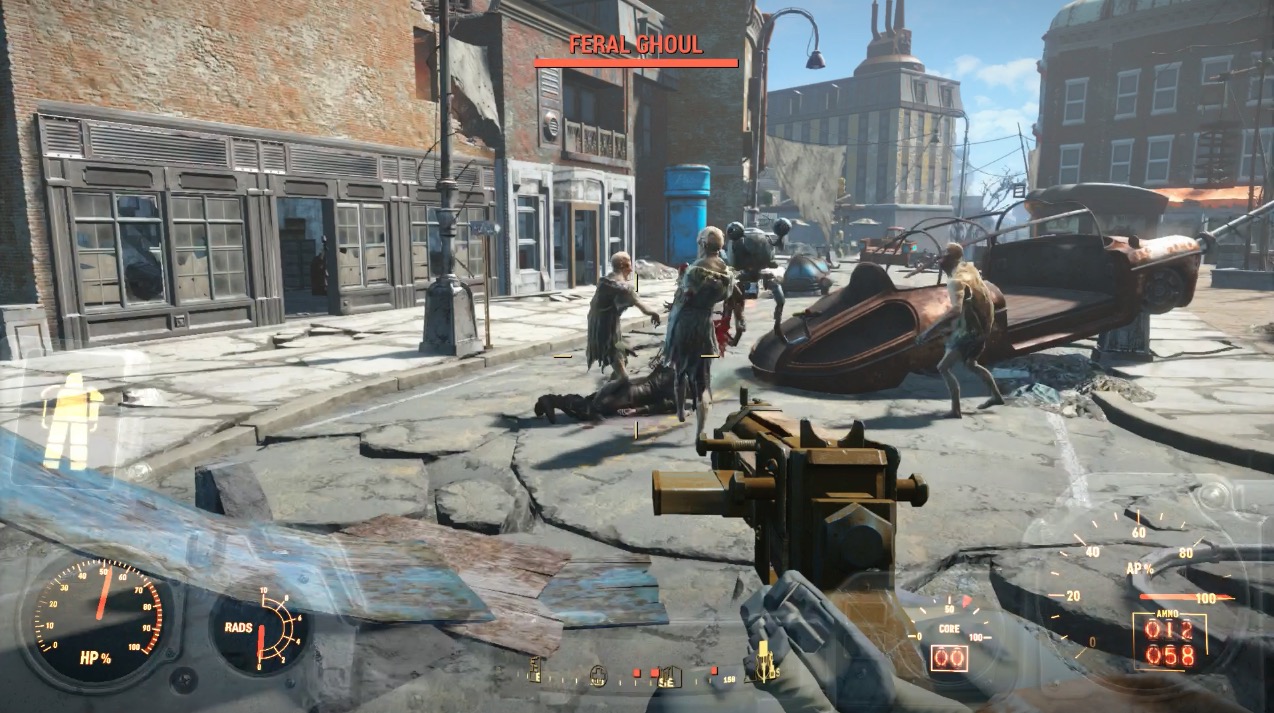


This has been a great year for video games. Most every critic I've spoken to has admitted difficulty with picking their top games for end of year lists, or at least that their top 10 is going to be loaded. But beyond simply the depth of games, it's also worth noting the wide variety in 2012's great games. The best games have come in such different forms that I think examining which are likely to take awards, and what that means, both for gaming in general and the people and publications who chose them.

Traditionally, games with conventional authored stories “embedded” in the game tend to get critical love: Dragon Age, BioShock, Portal, Arkham Asylum, and Gears Of War are all acclaimed recent examples. This year's crop includes The Walking Dead, with one of the strongest and most emotional narratives in video game history, as well as Mass Effect 3, which finished a very popular narrative-based series in style (except perhaps for that ending, hoo boy). Both of these games were very much about building a character and guiding him or her through a world filled with arbitrary but intense choices. Despite very different tones and genres, each pushed the player to make life or death choices, as determined by the game's writers, and both could place highly on Game Of The Year lists—especially The Walking Dead, thanks to being an underdog, capturing the zombie zeitgeist, and not having a massive controversy attached to it.
The Playstation 3 housed two other narrative favorites: Journey and Papa & Yo. Both of these used easy platformer/action adventure mechanics in the service of telling their stories. Journey's powerful, ambiguous religious allegory produced some of the most beautiful moments of the year, such as when you stagger up a mountain in the middle of a snowstorm, so very close to the end of your pilgrimage. Papa & Yo had a much more direct story of growing up with an alcoholic parent, but was perhaps even more powerful for it.
Finally, there are the blockbusters that usually dominate these lists. But it was a bad year for the so-called AAA games, thanks to BioShock: Infinite getting delayed and Medal Of Honor: Warfighter and Assassin's Creed 3 disappointing. Call Of Duty: Black Ops 2 got its traditionally good reviews, but little critical buzz, which seems to be a trend with the series—a problem with releasing a new installment every year, I expect. The game-length discussion of violence in video games, Spec Ops: The Line has some superfans, but I'm not sure I've seen a wide critical fanbase for it in simple terms of quality. This leaves Halo 4 as the sole major traditional embedded narrative blockbuster that seems likely to end up high on GOTY lists. I could see it topping a few almost by default; there are some who perhaps can't believe an indie game could be the best of the year.

The mirror of embedded narrative is emergent narrative, where the story of a game is derived more from the interactions of its systems than what was written by an author. Skyrim, last year's near-consensus Game Of The Year, was such a game, thanks to the joys that could be found in watching dragons and giants unexpectedly fight. Far Cry 2, Minecraft, and Civilization all fit this model as well.
The leading contender this year appears to XCOM, Firaxis' superb resurrection of the classic tactical combat series. Although it had a bare bones embedded narrative, its real joy came from the moment-to-moment stories, of a Heavy with a perfectly placed rocket to help squad survive, as well as the longer stories of building a Sniper from nothing to near-invincibility. It seemed to be a favorite, although the turn-based nature might have pushed some away.
Paradox's Crusader Kings 2 may have been overlooked by many, thanks to its narrow focus and that style of game's ( fairly deserved) reputation for inaccessibility. But it was one of the best emergent games of all time, encouraging Game Of Thrones-like political intrigue, and pushing the player into difficult decisions that pit the future of their nation, their family, and their character against one another. Another lesser-known PC game, FTL, may sneak onto a few lists. This is a roguelike-inspired space travel game, as you dash across the galaxy pursued by evil, and die horribly, marvelously, and repeatedly. Finally, Far Cry 3 is the biggest blockbuster built around emergent narrative, but I think it may have been released a little bit too late for enough people to play and love it.
This subgenre's been hiding in the shadows, waiting for the chance to strike. Suddenly not one but two major games brought it back, with style and variety. Dishonored was a thoroughly modern, three-dimensional successor to the much-loved Thief games, garnering massive critical acclaim upon release, although I do think it lost that buzz a little bit too quickly. Mark Of The Ninja looks like a throwback, as a two-dimensional side-scroller, but that's novel for stealth games. It used that approach to garner some pretty strong accolades.
Both of these games also succeed at using embedded and emergent narratives. Each tell stories that cleverly deal with the player's choices over the games while being interesting on their own. And good stealth games always have the emergent narrative of learning patterns and creating clever ways to deal with those patterns, or stories of being discovered and using every means you have to achieve safety. This combination can be powerful, and it's why I expect to see both of these prominently placed on many lists.
There's also Hotline Miami, which isn't quite as stealthy a game, but in terms of trying to read and respond to patterns, it feels quite similar. It also combines an incredibly simple, stylistic, and fascinating embedded narrative of psychotic breakdown with fast-paced action and sneaking. As an indie, PC-only release like FTL, I don't expect it to get wide support, but it'll show up on a few lists.
(Editor's note: Even the newly released Far Cry 3 should be in the running for this one.)

Apologies for the silly title. These are the games that exist less to have stories told about them, and more to simply be played. For example, it's been a great year for action/RPGs, thanks to Diablo 3 and Torchlight 2. But these games don't really have stories attached—or at least, quality stories attached—they're just a blast to play in the moment, and a entertaining to plan out long-term. Diablo 3's ambitious meta-gaming moves, like its Auction House, have been somewhat controversial so I'm not sure it'll be a common sight. Torchlight 2 is less controversial, but also less well-known.
There are also a few phone games which have dazzled, like Ziggurat and Super Hexagon. Simple and addictive, very few would argue that they told stories to most of their players. But they did compel those players. Rhythm games tend to lack story, and it's been a fine year for them, with Theatrhythm: Final Fantasy, Sound Shapes, Rock Band Blitz, and especially Dyad picking up a great deal of acclaim.
Finally there are a couple of outliers that don't really fit any category. Sleeping Dogs, a single-player open-world game set in Hong Kong, seems to be floating around several critics' lists. Alternately, there's Guild Wars 2, a massively multiplayer RPG which has received a great deal of acclaim for making that occasionally difficult genre a much smoother experience, virtually guaranteeing that many of its fans will include it in their lists.
With all that in mind, here are my predictions of how a conglomerate of end-of-year lists might look. I think the embedded narratives are still likely to dominate. Note that these are just my predictions, and not my personal list... that's coming in a week or two.
1. The Walking Dead
2. Dishonored
3. XCOM
4. Journey
5. Mass Effect 3
6. Mark Of The Ninja
7. Halo 4
8. Super Hexagon
9. Papa & Yo
10. Dyad/Guild Wars 2




 Fallout 4: Fire Support walkthrough
Fallout 4: Fire Support walkthrough Regarding Fallout 4: A Love Letter to Bethesda
Regarding Fallout 4: A Love Letter to Bethesda The cutest Chun Li cosplay youll ever see
The cutest Chun Li cosplay youll ever see Ubuntu Running Slow? 5 Tips to Speed Up Your Linux PC
Ubuntu Running Slow? 5 Tips to Speed Up Your Linux PC Oculus Reveals The Future of VR with the Consumer Oculus Rift
Oculus Reveals The Future of VR with the Consumer Oculus Rift